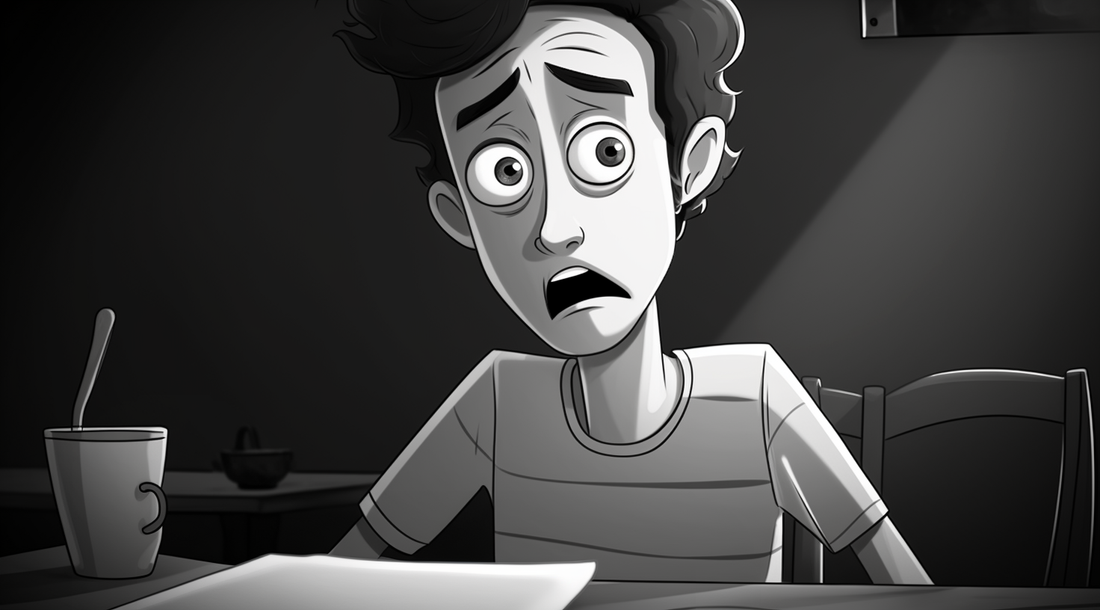Some people are quick to attribute their frequent flatulence to lactose intolerance. It’s not easy to accept being naturally gassy, so calling yourself lactose intolerant can provide a convenient explanation for others.
There could be other reasons for your toots though. Continue reading to explore other potential conditions.
Too Long Didn’t Read
- Having lots of gas doesn't always mean you have lactose intolerance. It might be something else, so talk to your doctor if you're worried and have other symptoms along with the gas.
- There are a number of conditions that can result in excessive gas: Crohn’s disease, ulcerative colitis (UC), irritable bowel syndrome (IBS), and more.
- You can test yourself with relative accuracy for lactose intolerance by drinking milk and seeing what happens. For a professional opinion, ask your doctors.
- There are a few tests that doctors can run to determine whether or not you have lactose intolerance
What Are Some Medical Conditions That Have Excessive Farting as a Main Condition?
I want to start this off by saying, gas in healthy amounts is completely normal. If it becomes excessive and is accompanied by other symptoms, you may want to talk to a doctor about what you’re dealing with. Excessive gas can sometimes be associated with conditions like Crohn’s disease, ulcerative colitis, or intolerances to dairy or gluten.
Do I Have Lactose Intolerance or Crohn’s Disease?
Crohn’s disease does not have a trigger in the same way that lactose intolerance does. With lactose intolerance, symptoms become clear after eating dairy and go away within 48 hours. With Crohn’s disease, flare-ups can come out of the blue and last days, weeks, or even months. In terms of symptoms, individuals with Crohn’s disease may experience bloody or mucusy stool, weight loss due to a loss of appetite; two traits that lactose intolerant people generally don’t have.
Do I Have Lactose Intolerance or Ulcerative Colitis?
Unlike Crohn’s disease, ulcerative colitis (UC) has some recognized flare-up triggers such as fried/greasy food, spicy food, alcohol, and more. Crohn’s and UC are both inflammatory bowel diseases (IBD), so their symptoms are similar to each other, but different from lactose intolerance.
Am I Lactose Intolerant if My Only Symptom is Farting?
There are a few main symptoms that go hand-in-hand when you’re lactose intolerant. These symptoms include bloating, stomach pain, gurgling noises, toots, and frequent bathroom visits.
I’m no doctor, but if these symptoms occur shortly after eating dairy, you’re likely lactose intolerant. But hey, let's not jump to conclusions just yet; there are ways to confirm your suspicions.
How Can I Test for Lactose Intolerance?
Although seeing a doctor is the most official way to get a diagnosis, there is a way to test yourself at home.
On a day you don’t have any plans, drink a nice big glass of milk (add some chocolate syrup if you’re into that). Then you sit and wait for about 45 min. If you’re feeling the symptoms within an hour, you’re very likely (almost positively) lactose intolerant. Congrats! Welcome to the club.
For 110% confirmation, ask your doctor. They may have you drink a liquid high in lactose, then test your blood and measure the glucose in your bloodstream and/or test the hydrogen in your breath.
Keep in mind that before a lactose intolerance test, you’ll likely have to fast for 8-12 hrs, stop taking antibiotics 2-4 weeks before the test, and no smoking or exercise within 24 hrs of the test. For small children, doctors may analyze stool to check for things like high levels of glucose and fatty acids.
I will say, try to avoid taking online “am I lactose intolerant” quizzes. Almost all of us experience memory bias, which means we don’t always remember events correctly. Maybe you remember Tuesday night as being a nightmare of hundreds of bathroom visits, but your significant other reminds you that it was only three quick visits. Essentially, it’s hard for us to report things that have happened in the past.
Final Thoughts
In a nutshell, don't jump to conclusions if you're experiencing excessive gas; it doesn't automatically mean lactose intolerance. There are various conditions, such as Crohn's disease, ulcerative colitis, and food intolerances, that could be responsible for your symptoms. Or, hey, maybe you’re just a gassy person and that’s ok!
Do NOT treat this blog as a diagnosis. If you want more information on lactose intolerance or any of the conditions we mentioned, consult your doctor.
The good news is that DairyPill has no side effects, so it can only help! ;)
- Steve Page, Founder

